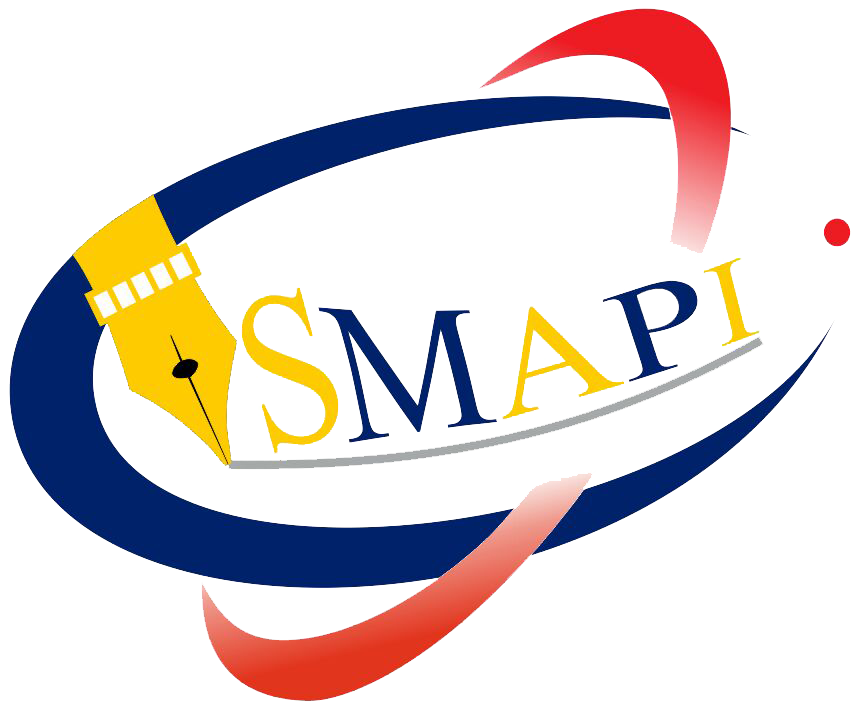EVALUATION OF ADDITIONAL FOOD PROGRAM FOR SCHOOL CHILDREN
DOI:
https://doi.org/10.22236/jkpuhamka.v3i1.5691Keywords:
Evaluation, Service Quality, Programs, Supplementary Feeding fir School ChildrenAbstract
This research aims to see the level of success in achieving the goals set for the Evaluation of School Child Supplement Program. This research is a qualitative descriptive study using an evaluation Discrepancy Evaluation Model (DEM) Input, Process, Output, to find out the level of success in achieving the goals set at Evaluation of Service Quality in School Child Supplement Program at SDN Pluit 03 Kelurahan Pluit North Jakarta. The subjects of this study were the Principal, Vice Principal and Chair of the Committee. Data collection techniques with the study of documentation, observation and interviews. Data analysis uses an interactive analysis model that is data collection, data reduction, data presentation and drawing conclusions. Input Components, all predetermined criteria for program implementation program Provision of Supplementary Food for School Children the input component is already good but there are components which have not been met related to additions to support the activities of School Child Supplementary Food Program to a better way. Process Components, there are some standards that are not implemented such as not carrying out deliberation activities, teachers have not fully carried out the mentoring properly, there are still teachers who do not accompany students, provide direction, or monitor. Output Components, standards that have been set based on output components are already good but not optimal occurs in community participation as supervisors not going well.
Downloads
References
Anas Sudijono, Introduction to Educational Evaluation, Jakarta: Raja Grafindo Persada, 2004
Arikunto, Suharsimi and Safrudin, Cepi, 2009, Evaluation of Educational Programs: Practical Theoretical Guidelines for Students and Educational Practitioners, Jakarta: Earth Literacy
Bachtiar S Bachri. 2010. Ensuring the Validity of Data through Triangulation in Qualitative Research. Surabaya: Journal of Educational Technology.
Berg, A. 1986. The Role of Nutrition in National Development. Eagle. Jakarta
Cica Yulia. 2017. Media education, nutrition and culinary. Vol.6, no.1 April 2017
MOH RI, 2005; Law of the Republic of Indonesia Number: 23 of 2005 concerning Health; Jakarta; Page 1. Indonesian physiotherapy; Jakarta
MOH RI, 2012; Law of the Republic of Indonesia Number 23 of 2012 concerning Health; Jakarta; Page 1. Indonesian physiotherapy; Jakarta; P. 5
Djaali and Pudji Muliono. 2008. Measurement in the field of education, Jakarta: garasindo.
Hari Setiadi, Abd. Rahman, A. Ghani, Suyatno. 2006. Evaluation of Educational Concepts and Applications. Jakarta: Uhamka Press.
Hidayat, S. 1997. Building Quality Human Resources, A Study of Community Nutrition and Family Resources. Scientific Oration. Faculty of Agriculture, Bogor
http://repository.uinsu.ac.id/928/1/Buku%20Evalu%20Pembelajaran.pdf
https://www.kompasiana.com/mahmudrifai/591d12c4179373180dd59ef9/peranan-sumber-daya-manusia-dalam-men Increase-mutu-pend Pendidikan/. July 15 2019. 18.00 WIB
Huey-Tsyh Chen, Practical Program Evaluation: Assessing and Improving Planning, Implementation and Effectiveness (London: Sage Publications, 2005).
Health; Jakarta; Page 1. Indonesian physiotherapy; Jakarta.
Laura Langbein and Claire L. Felbinger, Public Program Evaluation: A Statical Guide (New York: M.B. Sharpe Inc., 2006).
Leonard Rutman, Evaluation Research Methods: A Basic Guide (London: Sage Publications).
Mulyasa, E..2006. Become a Professional School Principal. Bandung: Youth Rosdakarya
Oemar Hamalik. 2009. Teacher Education Based on the Competency Approach. Jakarta: Earth Literacy.
Owen, op. cit.
Prasetya Irawan. 2006. Qualitative & Quantitative Research for Social Sciences. Jakarta: FISIP, Department of Administration, University of Indonesia.
Food Technology Study Program, Faculty of Engineering - Pasundan University
Stufflebeam, Daniel L., and Anthony J. Shinkfield. 1985. Systematic Evaluation. Boston: Kluwer-Nijhoff Publishing.
Sugiyono. 2015. Understanding Qualitative Research. Bandung: Alfabeta.
Sugiyono. 2016. Qualitative and Quantitative Research Methodology and R & D. Bandung: Alfabeta.
Suharsimi Arikunto and Abdul Jabar, Cepi Safrudin. 2008. Evaluation of Educational Programs. Jakarta: Earth Literacy.
Suharsimi Arikunto. 2002. Basics of Educational Evaluation. Jakarta: Bumi askara.
Sukardi. 2009. Educational Evaluation: Principles & Operations Jakarta: Earth Literacy.
Hero. 2011. Evaluation: Theory, Models, Standards, Applications, and Professions. Depok PT Raja Grafindo Persada.
Hero. 2012. Evaluation of Application and Professional Standard Model Theory. Jakarta: PT Raja Grafindo Persada.
Worthen and Sanders, op. cit.















